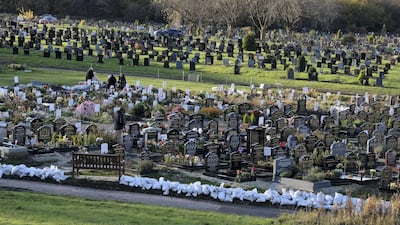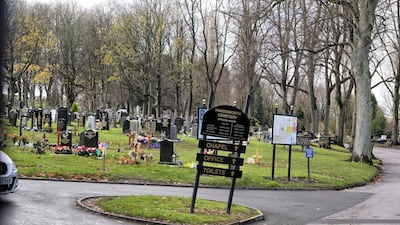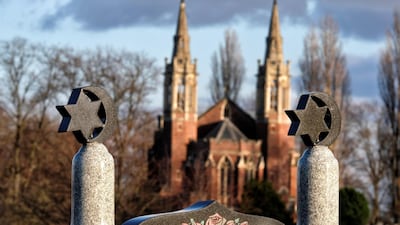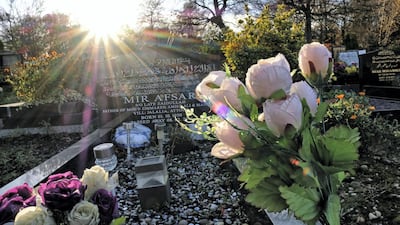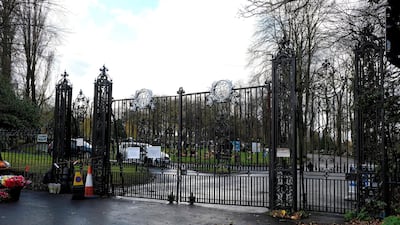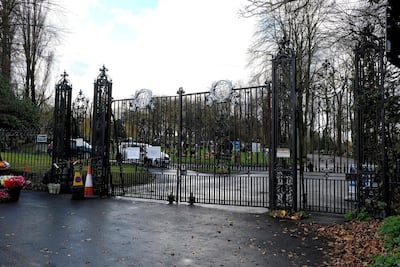A Birmingham graveyard became the first Muslim burial ground in the UK to declare itself full in the Covid-19 pandemic as gravediggers work overtime to handle a surge in deaths.
The northern cities of Birmingham and Bradford face an increase in demand owing to Covid-related deaths and space is in short supply.
Birmingham’s Handsworth Cemetery held its last Muslim funeral last week.
Two weeks ago it said only 15 spaces were left for Muslims and 70 for people of other faiths.
“The impact of Covid-19 has meant that burial space at Handsworth Cemetery has been used at a faster rate than we would have previously anticipated,” said Birmingham councillor Sharon Thompson, cabinet member for homes and neighbourhoods.
More than 3,270 people have died of coronavirus in the area and it is now one of the UK’s top 10 Covid hot spots, with more than 400 cases per 100,000 people.
In Bradford, the main Muslim cemetery is struggling to keep up with burials.
The chairman of Bradford's Council of Mosques and the head of the Muslim Bereavement Service, Zulfi Karim, said there had been a surge in deaths in the community.
"We've got three shifts of gravediggers and bereavement support people working from six in the morning until 10pm, preparing graves,” he said.
“In the space of 10 days we've had 38 burials, which would be the figure we'd normally have in a bad winter month.
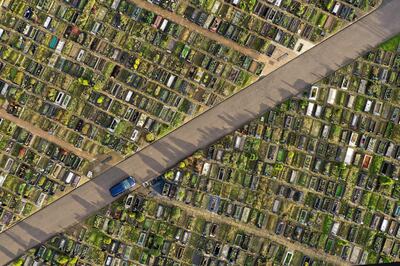
"As fast as we're digging the graves we're filling them up with dead bodies. It's really, really concerning, and my staff are getting to the stage where we're at full capacity. We're having to bring in a construction company to see if we can find new methods to design and prepare for digging a grave.
"From a personal point of view I've never seen anything like it. I never thought I'd experience this here in the UK in a non-war situation."
Bradford is recording more than 575 Covid cases per 100,000 people.
The government had placed it in the top tier of lockdown measures in an attempt to stem the spread before the whole country was plunged into a second lockdown earlier in November.
Bradford is currently experiencing about 100 deaths a week from all causes, up from 60 or 70 in the summer, Dr John Wright of Bradford Royal Infirmary said.
“In the hospital, Covid-19 admission rates have surpassed the first peak in April, but the good news is that mortality is considerably lower – less than a quarter of the rate in spring – as we have become experts in caring for and treating Covid patients,” he said.
“The average length of stay at Bradford Royal Infirmary has more than halved – from 13 days to six.”
In London, mass graves were dug this year to cope with demand at the Eternal Gardens, which is in Chislehurst, a district in south-east London.
Asif Hassanali, the development manager for Eternal Gardens, said his team usually buries a maximum of 10 people per week but the rise in Covid-related deaths means his team is burying 50 people a week.
"We are not as busy as we were in May," he told The National. "But we are seeing a similar trend picking up, especially this week. In the winter months we do see more deaths but there is a very similar pattern to earlier in the year and we are seeing more compared with the same period last year."
The Eternal Gardens has adopted a unique method of burying the deceased that is compliant with Islamic law to cope with the increase in demand.
It involves burying up to 10 people in individual chambers in one plot after a single funeral prayer is performed.
In April, Ismail Mohamed Abdulwahab, who was only 13, from Brixton in south London, was buried there.
His death brought the effect of the virus to the forefront of the nation after images were shown of him being buried without his family present, who were forced to self-isolate.
